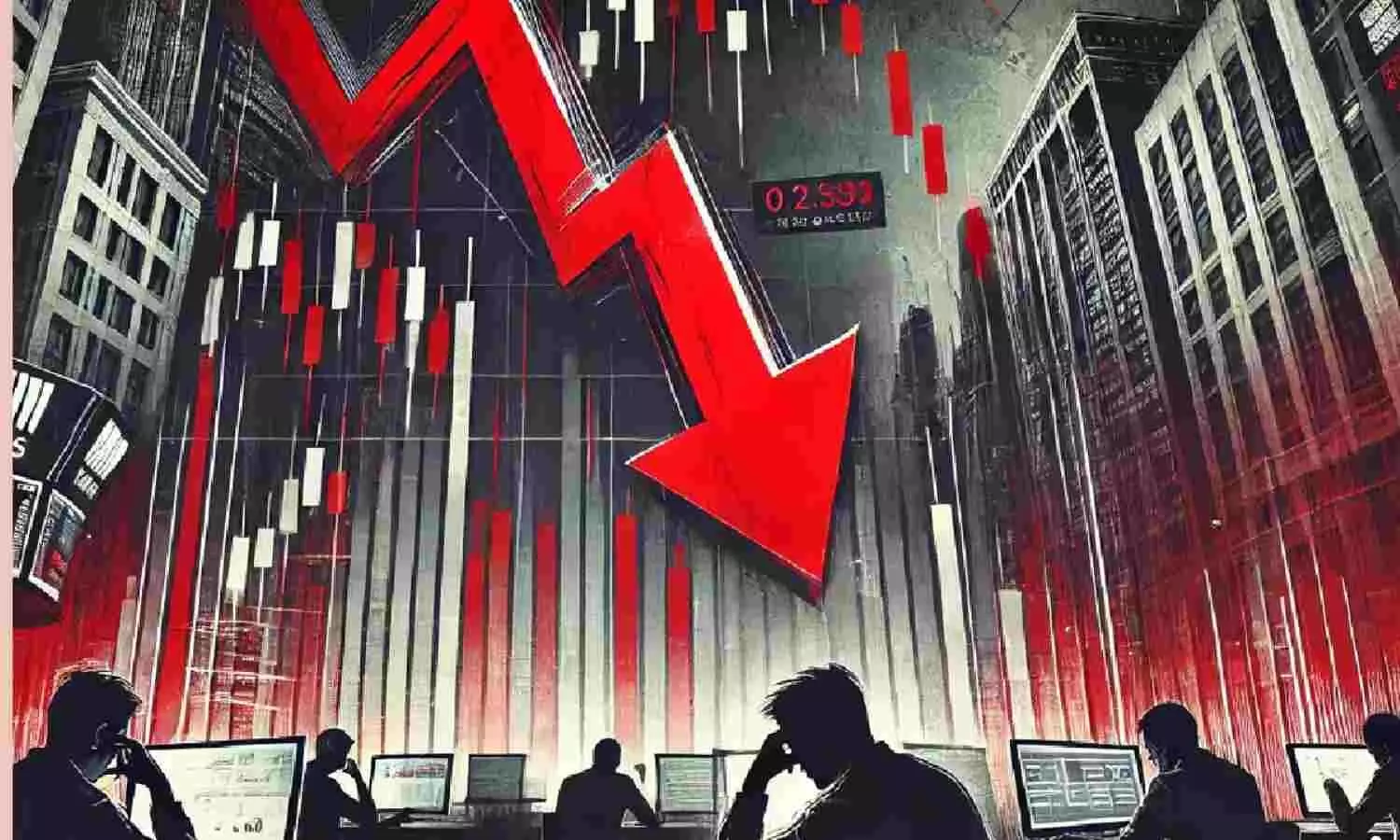Sensex Crashes 1,100 Points, Investors Lose Over Rs 14 Lakh Crore; Why Is Market Falling?
Indian blue- chip indicators, sensex nifty stock market fall, saw significant declines on Monday, replying to a stronger- than- anticipated US jobs report that dampened expedients for early interest rate cuts by the Federal Reserve. Decelerating earnings growth also counted heavily on request sentiment.
Sensex Crashes 1,100 Points, Investors Lose Over Rs 14 Lakh Crore; Why Is Market Falling?

The BSE Sensex dropped further than 1,100 points, reaching a low of 76,250, while the Nifty50 lost 350 points, sliding to 23,047.
Market capitalization across all BSE- listed companies fell by Rs 14.54 lakh crore, totaling Rs 416.08 lakh crore.
The US jobs report, released last Friday, shocked stock markets, fueling fears that the Federal Reserve may delay its awaited rate cuts. The US severance rate fell to 4.1 in December, with robust job growth, suggesting that financial easing is less likely in the near term. This has led to tighter global liquidity, placing fresh pressure on arising requests like India.
“requests are under pressure due to multiple headwinds. The strong US jobs data has reduced prospects of rate cuts by the Fed in 2025, now vaticinating just one cut," said VK Vijayakumar, Chief Investment Strategist at Geojit Financial Services. “ The rise in US bond yields will probably continue to drive small cap index selling in Indian equities," Vijayakumar added.
Foreign portfolio investors( FPIs) have continued their aggressive selling of Indian stocks. In January alone, FPIs have vended equities worth over Rs 21,350 crore, following Rs 16,982 crore in exoduses in December. This sustained selling pressure is attributed to enterprises over stretched valuations, disappointing commercial earnings, and rising US bond yields.
Global crude oil painting prices soared to a 15- week high amid new US warrants on Russia, which could disrupt global force chains. As a major importer of oil painting, India is particularly vulnerable to rising crude prices, which can strain financial health and complicate inflationary pressures, further adding to investor anxiety.

